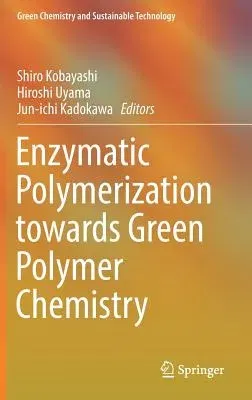This book comprehensively covers researches on enzymatic polymerization
and related enzymatic approaches to produce well-defined polymers, which
is valuable and promising for conducting green polymer chemistry. It
consists of twelve chapters, including the following topics:
- The three classes of enzymes, oxidoreductases, transferases and
hydrolases, have been employed as catalysts for enzymatic
polymerization and modification;
- Well-defined polysaccharides are produced by enzymatic polymerization
catalyzed by hydrolases and transferases; Hydrolase-catalyzed
polycondensation and ring-opening polymerization are disclosed to
produce a variety of polyesters;
- Polyesters are synthesized by in-vivo acyltransferase catalysis
produced by microorganisms;
- Enzymatic polymerization catalyzed by appropriate enzymes also
produces polypeptides and other polymers;
- Poly(aromatic)s are obtained by enzymatic polymerization catalyzed by
oxidoreductases and their model complexes;
- Such enzymes also induce oxidative polymerization of vinyl monomers;
- Enzymatic modification of polymers is achieved to produce
functionalized polymeric materials;
- The enzymatic polymerization is a green process with non-toxic
catalysts, high catalyst efficiency, green solvents and renewable
starting materials, and minimal by-products;
- Moreover, renewable resources like biomass are potentially employed as
a starting substrate, producing useful polymeric materials.
This book is not only educative to young polymer chemists like graduate
students but also suggestive to industrial researchers, showing the
importance of the future direction of polymer synthesis for maintaining
a sustainable society.

